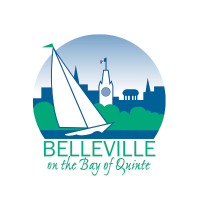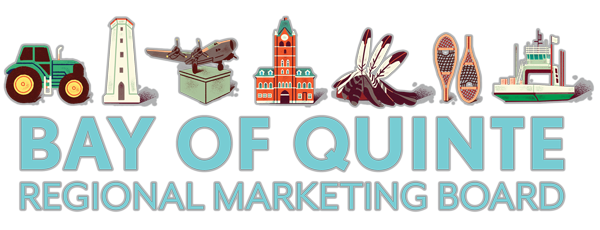Respectful Workplace Policy
GENERAL STATEMENT
River & Main Theatre Company is committed to providing a safe and respectful working environment free from harassment, sexual harassment, bullying, discrimination and other unwelcome behaviour (aka prohibited conduct, see appendix A) for everyone. Conduct intended to undermine the dignity or self-esteem of any individual, and behaviours that create intimidating, hostile or toxic work environments, will not be tolerated. Microaggressions should be mitigated.
We want everyone to know that they are safe to speak up about inappropriate behaviour and they will be heard. We will provide support for those who have experienced, witnessed, or been harmed through inappropriate behaviours. We will take prompt action to address inappropriate behaviour and allegations of inappropriate behaviour.
Healthy behaviour is respectful, safe, reciprocal, and even playful where there is synchronicity. Problematic behaviour can be unilateral, controlling, disrespectful, harassing, abusive, or violent.
APPLICATION
This policy applies to all workspaces, extensions to workspaces and any additional work-related spaces, and where interactions or their repercussions have a strong potential to impact the workspace (ex. transportation and accommodation on tour; organized social events; auditions).
PROTOCOL
Our primary goal is to prevent discrimination, harassment, sexual harassment, and bullying from occurring in the first place. Where issues do arise, the protocol outlined in this policy will be followed to address allegations of inappropriate behaviour, during which time we will support those who may have experienced or witnessed inappropriate workplace behaviour.
This protocol will follow due process. All parties will be treated fairly, without bias or prejudice. Those who have experienced inappropriate behaviour must feel free to bring their workspace issues forward. And those against whom allegations are made must have a full and fair opportunity to respond. We will hear both sides of a complaint, investigate or mediate as appropriate, and apply remedies as needed.
RESPONSIBILITIES AND EXPECTATIONS
Everyone:
We are all responsible for treating each other with respect and dignity, and each of us bears a responsibility to look out for each other. We must help identify and address issues. All parties are encouraged to consider both the impact as well as the intent of behaviours.
Prevention is the best remedy against disrespectful behaviour. We can all make mistakes. If you’re unsure whether your actions or words may be inappropriate or disrespectful…ask. Find a more respectful way of saying it or doing it. Or just don’t say it or do it at all.
Speak up about inappropriate behaviour. Telling the person in the moment is often the most effective solution. Even if you’re a witness or bystander, speak up!
- Explain how it affected you and ask that person to stop.
- Be calm, respectful and discreet. The other person may not have intended harm or even be aware of the impact of their behaviour.
- People can change their behaviour when they’re made aware of the problem
If a person approaches you about your own behaviour:
- Listen carefully. Respect the point of view and the person coming to you.
- Pause before responding if you are feeling emotional.
- Honest, direct dialogue often leads to resolution. Drop assumptions. Ask questions.
Further:
- Report incidents through the channels outlined in this policy as needed.
- All parties are expected to fully cooperate with any necessary investigations, while maintaining respect for the confidentiality and privacy of all parties involved.
- Allegations of reprisal or threat of reprisal, against persons making use of this policy or participating in its proceedings (retaliatory conduct) will not be tolerated.
- Allegations found to be frivolous, vexatious or made in bad faith are subject to sanctions.
PROCEDURES for the party making a complaint:
- If you are comfortable doing so, tell the person causing offence, either in person or in writing.
- If you are comfortable doing so, find someone to facilitate a conversation between yourself and the person causing offence, and mediate if necessary.
- If you have attempted to resolve the problem without success or are not comfortable addressing the problem on your own, bring the situation to the attention of the Safe Workspace Committee* through Chair, Lisa Spence or their designate as soon as possible.
- The person receiving the complaint should outrank the person of concern.
- Provide all pertinent details in writing, including the identity of people involved and any witnesses, time, location, actions, evidence and preferred outcome. After making the complaint, you are expected to refrain from discussing the situation with anyone else.
- River & Main Theatre Company is responsible for prompt and thorough investigation, as well as necessary corrective actions and remedies, which may include penalties and/or restorative justice.
N.B. Complaints must be received within two years as per Ontario law. Anonymous complaints cannot be considered within a formal process.
At any time you may contact your professional association / union or a lawyer for further information, particularly when the company fails to deal with the situation. In cases of assault, sexual assault or violence, please contact a lawyer and/or the police.
River & Main Theatre Company and/or investigator
GUIDELINES*
River & Main Theatre Company will ensure necessary investigations are undertaken promptly, objectively and thoroughly, while maintaining confidentiality and privacy.
Prompt: River & Main Theatre Company will reasonably complete the investigation as soon as possible, within 90 days or less unless there are compelling reasons why a longer investigation is needed (e.g. there are multiple witnesses, a key witness is unavailable due to illness, etc.).
Be objective: The investigation shall be conducted by an individual not involved in the incident and not under the direct control of the person causing offence.
Be thorough: Reasonable efforts shall be made to interview the person allegedly harmed (harassed, discriminated against, etc.), the alleged person causing offence and any witnesses, as appropriate in the circumstances. When interviewing, we will ask specific questions about the incident or complaint. For example, what did the person see, hear or experience. Detailed interview notes, including relevant documents from the person allegedly harmed, the person who allegedly caused offence, witnesses and the employer will be collected and reviewed.
Maintain confidentiality and privacy: Information about the incident or complaint, including information about the people involved, shall not be disclosed to the appropriate authority unless the disclosure is necessary to protect persons or is needed to investigate the incident or complaint, take corrective action and/or is otherwise required by law.
Report Outcome: River & Main Theatre Company will advise the Complainant (person making the complaint) and Respondent (person against whom the complaint was made) in writing of the outcome, including penalties or other actions to address the situation.
POLICY ADMINISTRATION
River & Main Theatre Company will review this policy and procedures on an annual basis, or as required, and will make necessary adjustments to ensure that it meets the needs of all workers and volunteers covered by this policy. Enquiries about this policy and related procedures can be made to Safe Workspace Committee* through the Chair, Lisa Morris.
*The Safe Workspace Committee is:
Lisa Spence, Chair (lisaspence6969@gmail.com)
Mihal Zada (ididit@gmail.com)
Effective Date: July 16, 2021
Revised: July 10, 2024
Disclaimer: This is not legal advice. It doesn’t replace applicable regulations or cover other legal obligations such as those under Canada’s Criminal Code or any jurisdiction’s particular Labour Code and Human Rights Code. You should obtain legal advice if you need help determining what constitutes compliance.
Appendix ‘A’: TERMINOLOGY
Harassment means engaging in a course of vexatious comment or conduct that is known or ought reasonably to be known to be unwelcome. Harassment may include comment or conduct toward another person(s) causing humiliation, offence or embarrassment, or has the effect of unreasonably interfering with the person’s work, and/or creates an intimidating or hostile environment. Repeated comment or conduct is ordinarily required to demonstrate harassment; however single acts of sufficient severity may also constitute harassment.
Harassment may include:
- physically intimidating behaviour and/or threats;
- inappropriate or insulting remarks, gestures, jokes, innuendo or taunting;
- ridiculing, belittling or humiliating another person; derogatory name calling;
- unwanted personal/private queries or comments;
- posting materials, articles, graffiti, etc. (including online) that may cause humiliation or offence.
What is not harassing behaviour?
-
offering constructive feedback, guidance, or advice about work-related behaviour and performance;
- reasonable direction of the work / performance;
- making legitimate, good faith complaints about someone’s conduct through this complaint procedure.
Bullying is a distinct form of harassment and may include: loud, abusive behaviour; shunning behaviours such as withholding information, ganging up, deliberate isolation from colleagues or exclusion from joint activities; and repeated delegation of demeaning tasks. Bullying can also be called Personal or Psychological Harassment.
Sexual harassment means engaging in a course of vexatious comment or conduct because of sex, sexual orientation, gender identity or gender expression, where the course of comment or conduct is known or ought reasonably to be known to be unwelcome. Further, when a person makes a sexual solicitation or advance that is known or ought reasonably to be known to be unwelcome, their behaviour may constitute sexual harassment, particularly when a person is in a position to confer, grant or deny a benefit or advancement to a worker.
- unwelcome remarks, jokes, innuendo or taunting about a person’s body, attire, gender or sexual orientation;
- unwelcome enquiries or comments about a person’s sex life or sexual preference;
- inappropriate comments about clothing, physical characteristics or activities;
- unwanted touching or inappropriate physical contact, ex. kiss, pat, hug, pinch;leering, whistling or other suggestive or insulting sounds
- posting or display of materials, articles, graffiti, etc.(including online) that is sexually oriented;
- requests or demands for sexual favours that imply promises and/or threats;
- or, reprisal or threat of reprisal for the rejection of a sexual solicitation or advance.
Discrimination is an action or a decision that treats a person or group badly for reasons described in federal or provincial human rights legislation. Grounds for discrimination include: race; national or ethnic origin; colour; religion; age; sex; sexual orientation; gender identity or expression; marital status; family status; mental or physical disability; etc.
Microaggressions include statements, actions, or incidents regarded as indirect, subtle, or unintentional discrimination against members of a marginalized group (ex. women, transgender, nonbinary; LGBTQ2S; racialized; ethnocultural; people with disabilities) that may cause harm or distress over time. N.B. Microaggressions may contribute to an individual’s experience of harassment, bullying and/or discrimination.
Toxic / Poisonous / Unwelcome Work Environments are situations where any or all of the above conditions can have the effect of poisoning or making the work environment harmful for everyone. A person does not have to be a direct target of harassing or discriminatory behaviour to be adversely affected by a negative environment.
For further information: Consult your provincial Occupational Health and Safety Act, applicable Labour Laws, etc.




